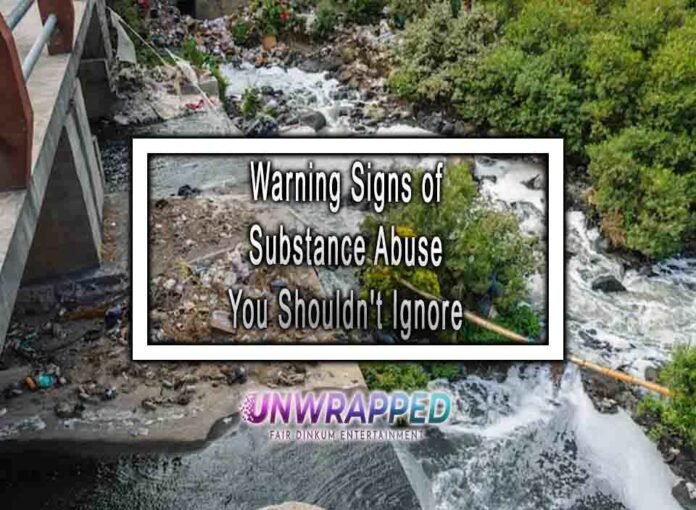Substance abuse can have serious and detrimental effects on physical and mental health. Recognizing the warning signs of substance abuse is essential for early intervention and support. If you observe these signs in yourself or someone else, it’s important to seek help promptly. Here are warning signs of substance abuse that shouldn’t be ignored:
1. Changes in Behavior:
- Isolation: Withdrawal from friends, family, and social activities.
- Erratic Behavior: Unpredictable or unusual actions, mood swings, or extreme changes in energy levels.
- Secrecy: Attempts to hide substance use or secretive behavior.

2. Physical Signs:
- Deterioration in Appearance: Unexplained weight loss, neglect of personal hygiene, and changes in physical appearance.
- Bloodshot Eyes: Red or bloodshot eyes, dilated or constricted pupils.
- Tremors: Shaking hands or body tremors.
3. Mood and Emotional Changes:
- Irritability: Increased irritability, anger, or defensiveness.
- Depression or Anxiety: Persistent feelings of sadness, hopelessness, or excessive worry.
- Mood Swings: Unexplained and drastic shifts in mood.
4. Performance and Responsibility Issues:
- Decline in Work or Academic Performance: Decreased productivity, frequent absences, or neglect of responsibilities.
- Financial Problems: Unexplained financial issues, borrowing money, or stealing to support substance use.
5. Social and Interpersonal Changes:
- Conflict in Relationships: Frequent arguments or conflicts with friends, family, or colleagues.
- Change in Social Circle: Associating with new, potentially risky, or substance-using friends.
6. Neglect of Hobbies and Interests:
- Loss of Interest: Disinterest in activities or hobbies that were once enjoyed.
- Neglect of Responsibilities: Failure to meet obligations at work, school, or home.
7. Physical Health Issues:
- Frequent Illness: Weakened immune system leading to more frequent illnesses.
- Unexplained Aches and Pains: Physical complaints without an apparent cause.
8. Tolerance and Withdrawal:
- Increased Tolerance: Needing larger amounts of a substance to achieve the same effects.
- Withdrawal Symptoms: Experiencing physical or psychological symptoms when not using the substance.
9. Risky Behavior:
- Impaired Judgment: Engaging in risky behaviors, such as driving under the influence.
- Legal Issues: Legal problems resulting from substance-related incidents.
If you or someone you know is exhibiting these warning signs, it’s important to seek professional help. Substance abuse treatment options include counseling, therapy, support groups, and medical interventions. Initiating a conversation with empathy and support can encourage individuals to seek help and embark on the path to recovery. If you are unsure about how to approach the situation, consider involving a healthcare professional or addiction specialist for guidance.











